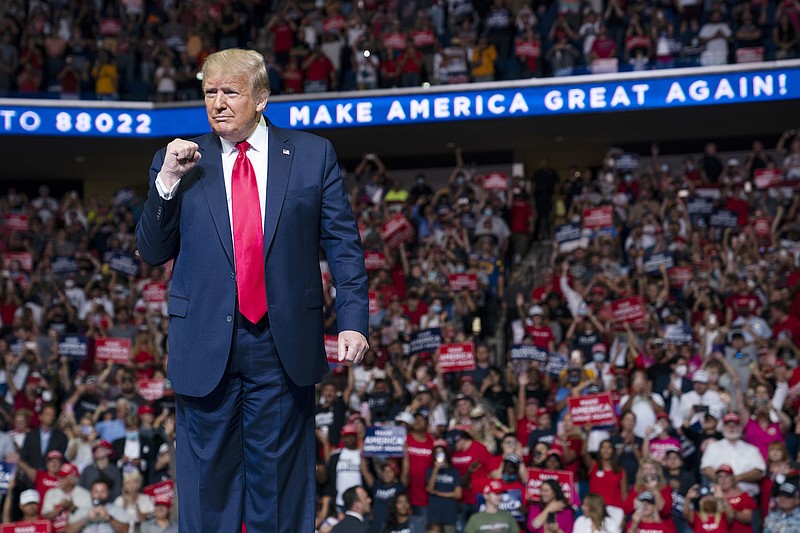For all the ways that the coronavirus pandemic has upended our daily routines, perhaps the most intriguing is a growing consensus that the best way to protect our democracy is to spread the vote-by-mail concept that has flourished for years in several states.
Not surprisingly, that big step toward what's now called the "new normal," has been controversial.
Five states - Colorado, Hawaii, Oregon, Washington and Utah - conduct all of their elections by mail, according to the National Conference of State Legislatures. Twenty-one states decide other elections, such as for school board seats, by mail.
The NCSL acknowledges some advantages. Those who vote by mail report it is a simpler process and produces savings by making poll workers or voting machine purchases unnecessary. An added bonus is that by making voting easier, voter turnout has increased.
Yet the best advantage is that foreign interference with our elections could be stymied.
There are disadvantages - diminished contacts with neighbors at the polls, the increased cost of printing and mailing ballots, and slower vote counting. Remember, though, that throughout our history, the nation has overcome a lot of voting problems.
An increasing number of objections, however, are political, including anti-mail voting conspiracy theories conveniently unsupported by evidence.
Admit it, were you surprised by President Trump's opposition, based on obvious self-interest? Politico reported in mid-June that the president had "called mail-in voting the biggest threat to his re-election." But think about his additional statement - that his "campaign's multimillion-dollar legal effort to block expanded ballot access could determine whether he wins a second term."
That tells all you need to know about the GOP's position on voting this year.
Trump's objections were fairly tame. But he always has his Twitter account set up for red-meat fury.
According to Fox News, Trump tweeted: "RIGGED 2020 ELECTION: MILLIONS OF MAIL-IN BALLOTS WILL BE PRINTED BY FOREIGN COUNTRIES, AND OTHERS. IT WILL BE THE SCANDAL OF OUR TIMES!"
Ah, yes. Something else "rigged" against him. There was no evidence for his claim, similar to one given recently given to The New York Times in May, which suggests the all-caps shout-out was just another lie, part of the litany of untruths he's amassed since 2017.
Trump's tweet was comported with an interview Attorney General Bill Barr gave to Fox News, the substance of which suggests Barr is a useful abettor of Trump's campaign against mail-in voting.
Barr claimed that such voting "opens the floodgates to fraud," warned foreign countries could "print up thousands of counterfeit ballots," and who could figure out which ones were valid.
He didn't provide any basis for his claim, evidently confidant his gravitas speaks for itself.
Trump's campaign against mail-in voting is obviously not just some rhetorical exercise. His intent is to create doubt about the integrity of the presidential election. That's something other Republicans should oppose, presuming they could summon the courage.
There is of course an ulterior motive at work, and it is fueled by the false claims of rampant voter fraud, threats to withhold federal funding to states adopting mail-in voting, and the drumbeat criticism of the concept.
God forbid there are vote counting delays, lest Trump resort to litigation alleging they are proof of a "rigged" system. All this comes as Russian voters on Wednesday approved constitutional changes that will allow President Vladimir Putin to run for two more terms after his current term ends in 2024.
Thus a difference between the two men. Trump is desperate, deeply suspicious and inexhaustibly petulant. Putin is cunning, calculating and unlike Trump, confident.
So much so that he reportedly has created his own MAGA acronym to describe his future plans. Translated from the Russian Cyrillic alphabet, it reads: Make America Go Away.
Michael Loftin is a former opinion page editor for The Chattanooga Times.
